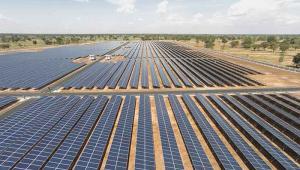As delegates gather for the AIIB’s annual meeting in Luxembourg today, a coalition of NGOs is calling on the mulitlateral development bank to commit to a target of limiting the increase in global temperatures to 1.5°C.
A senior bank official said it was making efforts to align its approach with the objectives of the Paris Agreement on climate change and is committed to catalyzing low-emissions and climate-resilient development in line with these goals.
When the AIIB launched in 2016, its Chinese president Jin Liqun pledged that the institution would be “lean, clean and green.”
However, new research by the Bank Information Center Europe and the Big Shift Campaign reveals that out of just over $8bn billion invested, 20% of the AIIB’s funding ($1.6bn) has gone towards fossil fuels while just 8% ($660m) has gone to renewables.
In addition, fossil fuels represent 57% of the bank’s energy lending compared to just 24% for renewables.
Kate Geary of BIC Europe said: “Our evidence shows a heavy AIIB bias to fossil fuel projects over renewables. This should be unacceptable to European shareholders, for example the UK government which has just declared a climate emergency.”
She added: “The house is on fire – will the AIIB fuel the flames or help put them out?”
And Anuradha Munshi of the Centre for Financial Accountability (India) commented: “Institutions like AIIB have been following in the footsteps of other MDBs of the past and are fomenting the climate crisis by investing in disastrous projects like fossil fuel energy sources.”
Campaigners are demanding that the bank develop an action plan to show how it will align its policies with the Paris Agreement, and provide a “road map” for shifting investment out of fossil fuels by 2020.
Laurel Ostfield, the AIIB’s director general, communications, said: “Last December, we signed up to the joint declaration of MDBs to align our approaches with the objectives of the Paris Agreement.”
The bank is “committed to working together with our peer MDBs to catalyze low-emissions and climate-resilient development in line with the goals of the Paris Agreement, which aims to limit the increase in global temperatures to well below 2°C, pursuing efforts for 1.5°C.”
She added: “For example, we will apply shadow carbon pricing in our economic evaluation of projects to determine the viability of our energy projects, and we are currently testing the robustness of analyses using a range of different discount rates and carbon prices.”














